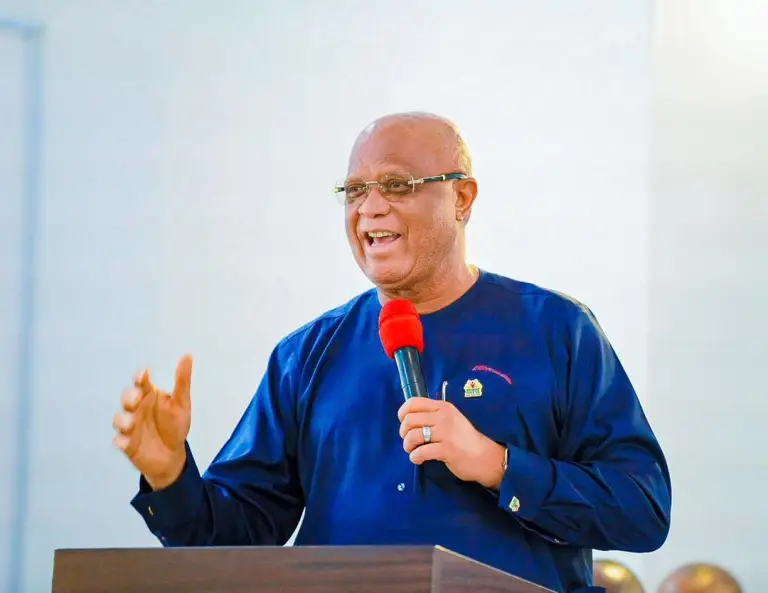Prince Emmanuel Etuk, Chairman and Chief Executive Officer of DM Auto Company Nigeria Limited, has identified a source of inspiration in Akwa Ibom, which he said is tied to Governor Umo Eno’s programme aimed at alleviating socio-economic plight of the downtrodden and rural communities in the state.
In some sort of performance evaluation of the Umo Eno administration, which commenced on May 29, 2024, Etuk, in a statement he personally endorsed, a copy of which was obtained by Sunday Independent, asserted that the governor’s commitment in attending to vulnerable members of the society and rural community development initiatives are “testament to the transformative power of leadership that prioritises the wellbeing of all citizens, especially those who are most in need.”
The assertion came on the heels of charitable housing projects for vulnerable persons, other humanitarian gestures and rural community development initiatives spread across 31 local government areas in the state, which are adjudged to have constituted the hallmark of the governor’s performance in his first one year in office.
According to the frontline businessman, who has always been offering objective critiques to successive administrations in the state since 1999, the governor’s “vision for a more and equitable society serves as inspiration to us all and reminder that positive change is possible when we stand together in solidarity and compassion.”
Advertisement
He added, “The resuscitation programme of Governor Umo Eno stands out from other social welfare initiatives in the region in several key ways” and that his shift from indifference offers “a beacon of hope and progress.”
The statement stated in part: “The programme specifically focuses on the poorest of the poor and widows in the community, identifying and prioritizing those who are most in need of support.
“This targeted approach ensures that resources are directed to those who are often overlooked or marginalised by other social welfare programmes.
“Unlike some social welfare initiatives that may only address one aspect of poverty or vulnerability, the resuscitation programme offers comprehensive support to beneficiaries.
“The programme actively involves community in its implementation, fostering a sense of ownership and collaboration among beneficiaries and stakeholders (and) by engaging local leaders, organisations and volunteers, the programme creates a network of support that extends beyond government intervention and promote community resilience.”
Related posts
Categories
- Advertisements (1)
- Agriculture (45)
- Breaking News (26)
- Business (598)
- Crime (991)
- Education (320)
- Entertainment (128)
- Features (13)
- For The Records (43)
- Foreign News (1,190)
- Health (219)
- Home News (332)
- Interview (9)
- Judiciary (352)
- Lifestyle (140)
- Local News (111)
- National News (1,448)
- Opinion (26)
- Politics (1,014)
- Religion (157)
- Science and Technology (125)
- Security (684)
- Sports (881)
- States' News (822)
- Transportation (330)
- Uncategorized (10)

